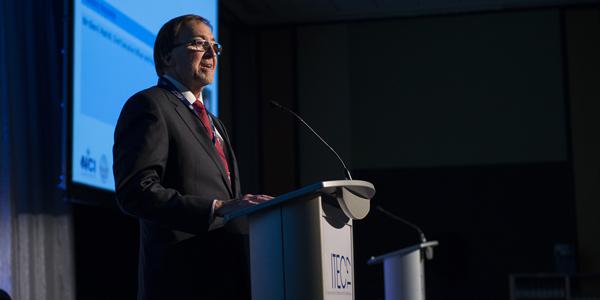Security Trust Issues Magnified in Alliance
U.S. cybersecurity firms have discovered the value and the difficulty of building a stable of trusted peers, but extending that principle to the multinational status of NATO will be as challenging as it is important, according to a U.S. technology firm leader experienced with both government and industry. Glen F. Post III, CEO and president, CenturyLink, told the first-day audience at NITEC 2017 in Ottawa that his firm serves its customers by relying on trusted partners who can support the company as needed.
The company is both a key provider and protector of critical infrastructure today, he explained, and cybersecurity is a continually moving target. NATO’s countries and companies must join forces to secure their systems and infrastructures.
“At the end of the day, cybersecurity is not just a job—it’s an obligation,” he declared.
In an exclusive interview after his presentation, Post emphasized the importance of NATO and its governments working with the private sector. To be a world leader in cybersecurity, the alliance must be open to relying on trusted peers.
However, the challenge is to build that network of trusted peers. Post said NATO must open up its data and infrastructure to a few firms that are vetted well. And, it cannot do this soon enough. Given the complicated nature of this tasking, Post suggested that NATO use an existing form to begin a dialog with the private sector.






Comments